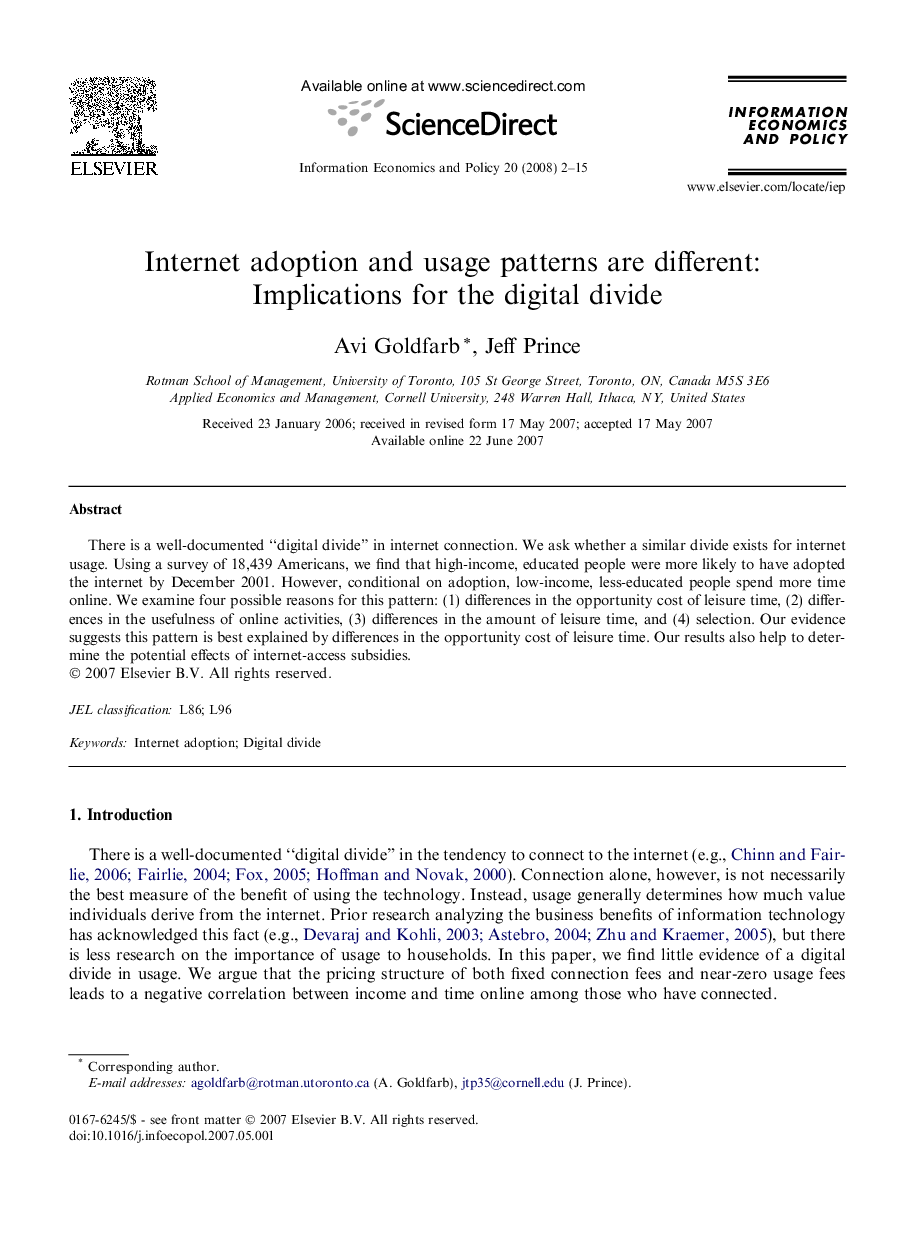| Article ID | Journal | Published Year | Pages | File Type |
|---|---|---|---|---|
| 5075987 | Information Economics and Policy | 2008 | 14 Pages |
Abstract
There is a well-documented “digital divide” in internet connection. We ask whether a similar divide exists for internet usage. Using a survey of 18,439 Americans, we find that high-income, educated people were more likely to have adopted the internet by December 2001. However, conditional on adoption, low-income, less-educated people spend more time online. We examine four possible reasons for this pattern: (1) differences in the opportunity cost of leisure time, (2) differences in the usefulness of online activities, (3) differences in the amount of leisure time, and (4) selection. Our evidence suggests this pattern is best explained by differences in the opportunity cost of leisure time. Our results also help to determine the potential effects of internet-access subsidies.
Related Topics
Social Sciences and Humanities
Business, Management and Accounting
Management of Technology and Innovation
Authors
Avi Goldfarb, Jeff Prince,
